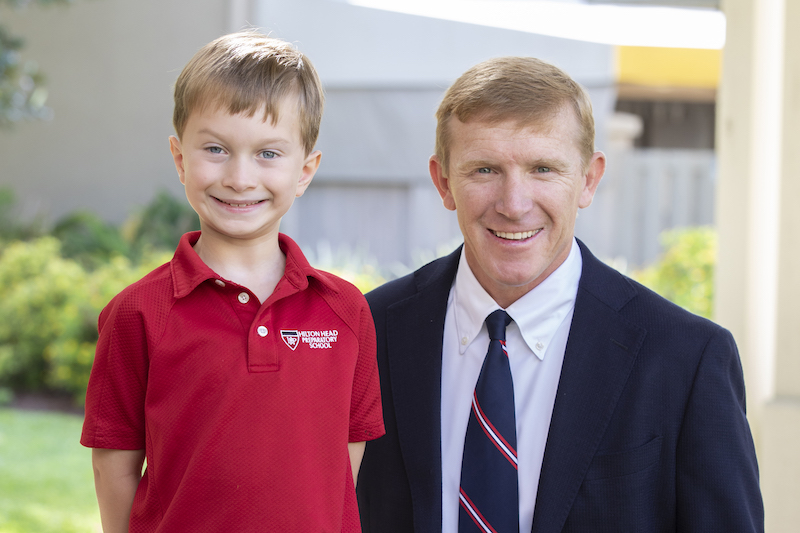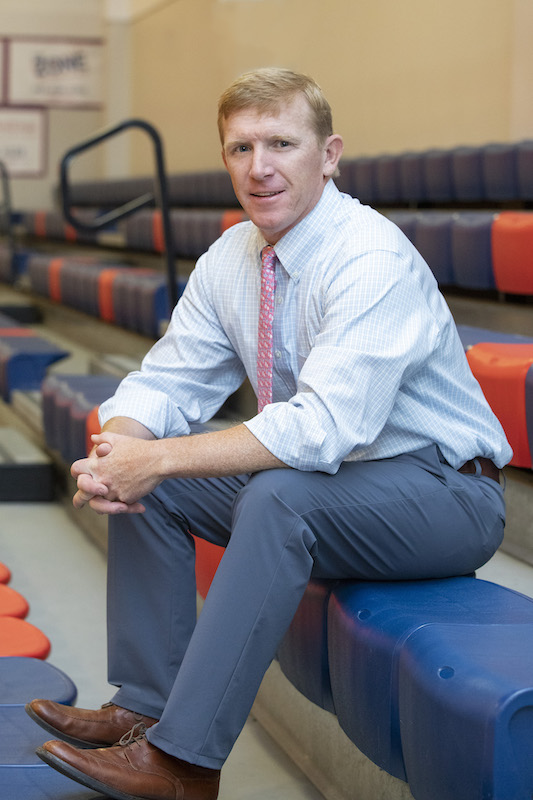Article by Paul Horgan (Head of School at Hilton Head Prep)
Friday March 13, 2020 was the day normal ended. May I suggest… “Good riddance?”
One could argue that the normal of the past wasn’t so great. There are, of course, many things we are thrilled to have back and many laws and conventions of the pandemic we were happy to see go away. I missed handshakes and hugs, big crowds at Friday night games, dances and parties, and the things that bring people together. However, in the years preceding March 2020, we also know that dark clouds were gathering for our children. Teen anxiety and depression were fueled by pressure to overschedule and overachieve, driven by an unhealthy false belief that doing everything well was the key to happiness and success.
Parents and educators began to recognize that children were being spread too thin, but out of fear of letting their kids fall behind, few were willing to stop or take anything off the plate. Testing and measurable performance pressured teachers to heap on the homework and cram everything they could into the curriculum. Students took AP classes in subjects they didn’t like in order to look good for colleges. The tutoring industry blossomed in support of nursing kids through classes that were over their heads. Anything short of an A was a disappointment. Varsity athletes drove from school practice to their club of choice to get in a few more hours of practice. High cost recruiting services made hollow promises to mediocre athletes aspiring to college scholarships. Internships, community service, part-time jobs, nonprofit startups and ambiguous leadership camps garnished the already full plates.
Schools added “wellness” programs and talked about mental health as a crisis. People “talked” about the problem, but when the talk turned to action, few wanted it to be their things that got taken off the plate. Even teachers acknowledged that kids had too much homework, but for too many of them, that concern didn’t apply to their classes. School leaders saw the problem but continued to add programs and opportunities. Parents shared articles on their Facebook feeds about the pressure sports put on kids yet stood on the sidelines screaming at their kid to score the next goal. The problem was evident, but as we celebrated the New Year in 2020, the fear of falling behind the pack was stronger than the clear need for something to change.

Paul Horgan, the new Head of School at Hilton Head Prep with Lochlan Hart.
This was all normal.
Like a power outage during an all-nighter finishing a term paper, it all stopped abruptly in March 2020. The choices we wouldn’t make were made for us. No more normal.
Suddenly the reality of what we took for granted sunk in like a lead balloon. The joy of what at first felt like a series of snow days turned to deep sadness about the loss that was occurring all around us. Kids had been programmed to do everything and suddenly found themselves in a circumstance in which they could hardly do anything. Our already screen addicted population was driven to a life of Zoom as their only way to connect with others. Schools scrambled, some amazingly well, to retool their programs and provide the education.
Teachers young and old were forced to rethink their approach and find ways to engage children in meaningful ways that not only delivered content, but also gave them community and connectedness. Mental health conversations took on a heightened sense of urgency, and empathy spread faster than the virus itself. We asked our students and faculty what they felt were the most important things to bring back when we could, and the results reflected an adjustment of values. It wasn’t the exam schedule or more instructional time. Instead, across all age groups, it was community, connectedness, personal engagement, and fun.
COVID has brought on a global tragedy, however it also provided the hard stop that education needed to make truly transformative changes. A whole new set of technological skills has armed young and old alike to be more collaborative and efficient, while allowing them to be present regardless of their physical locations. They are more resilient, more nimble, more independent and better prepared for a future that is uncertain. Many of the jobs our kids will do don’t even exist yet. They’ll be ready.
Schools like Hilton Head Prep are well equipped to lead in this post pandemic world where connectedness, community and balance will be markers of success and happiness. We have the staff, resources and familial support to ensure our students are known and challenged, pushed to be their best without ignoring the importance of mental health and personal character. Like the students, we can be nimble, forward thinking and committed to ensuring that our students are set up for success beyond high school and prepared to gain admission to excellent colleges.
An environment where students are known is one that allows educators to help kids make choices in their curriculum, find their passions in and out of the classroom and learn to test and understand their comfort zones. Every student doesn’t need to be everything to everyone all the time. Helping them find what is great about themselves and teaching them to find the best versions of themselves requires attentiveness, mentoring, an ambitious climate and excellence across the curricular and co-curricular programs. At a school like Prep, it is an achievable goal to understand that everything we do is curriculum from the time a child walks on the campus to the time they go home. It is also an achievable goal to teach kids to work hard and seek excellence without engendering an unhealthy culture.
A school like Hilton Head Prep can craft the future of normal in a way that is good for kids. The lessons of the past and the pandemic’s reminders of what matters the most can serve as guides. The twenty-first century offers a different path than the one we walked before March 2020, and leaders in education need to have the courage and compassion to take it.



